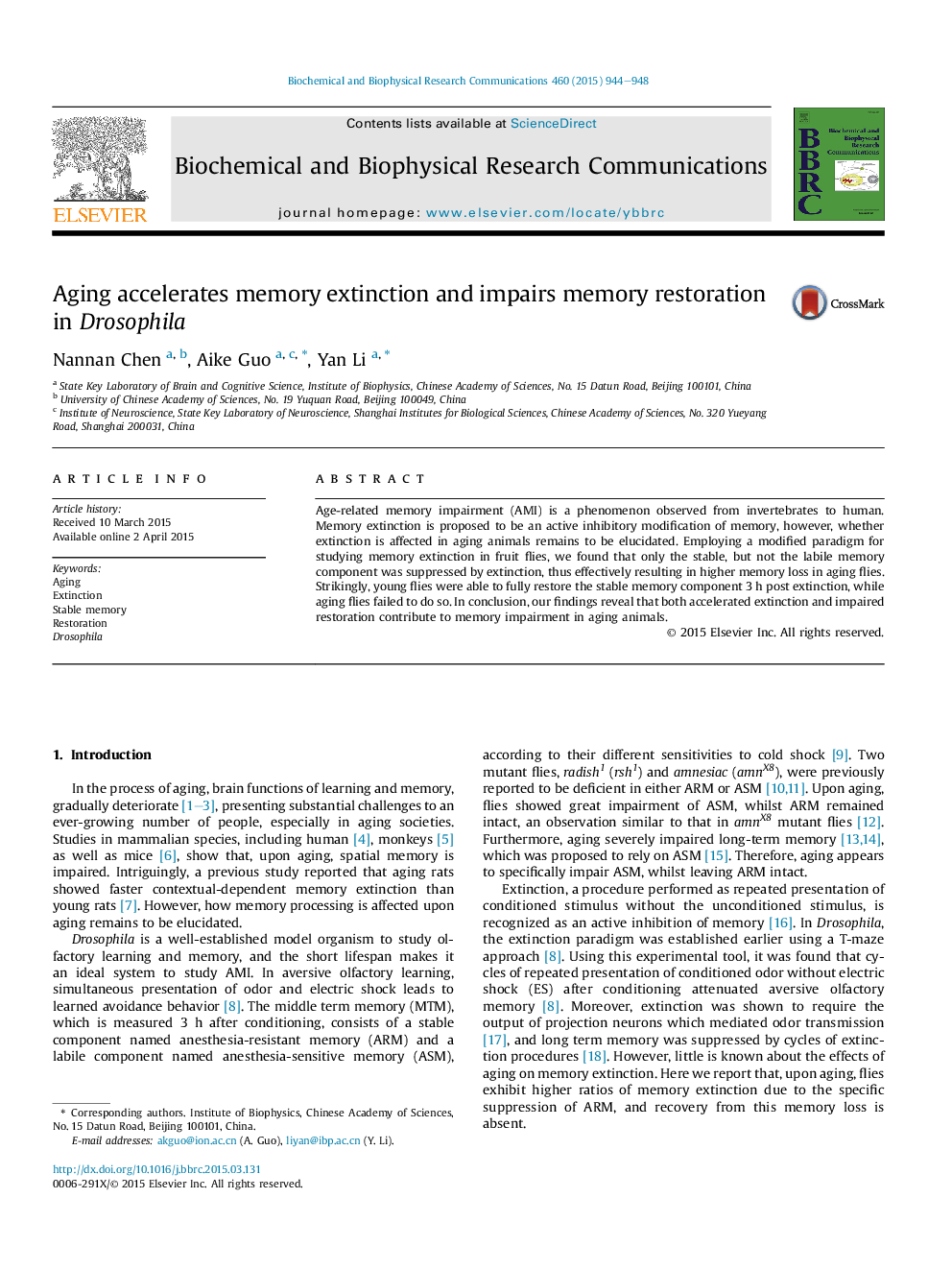| Article ID | Journal | Published Year | Pages | File Type |
|---|---|---|---|---|
| 1928172 | Biochemical and Biophysical Research Communications | 2015 | 5 Pages |
•In aging flies, a higher ratio of memory loss upon extinction was observed.•Extinction procedures suppressed the stable, but not the labile memory component.•The extinguished stable memory was restored in young flies, but not in olds.
Age-related memory impairment (AMI) is a phenomenon observed from invertebrates to human. Memory extinction is proposed to be an active inhibitory modification of memory, however, whether extinction is affected in aging animals remains to be elucidated. Employing a modified paradigm for studying memory extinction in fruit flies, we found that only the stable, but not the labile memory component was suppressed by extinction, thus effectively resulting in higher memory loss in aging flies. Strikingly, young flies were able to fully restore the stable memory component 3 h post extinction, while aging flies failed to do so. In conclusion, our findings reveal that both accelerated extinction and impaired restoration contribute to memory impairment in aging animals.
Graphical abstractFigure optionsDownload full-size imageDownload as PowerPoint slide
